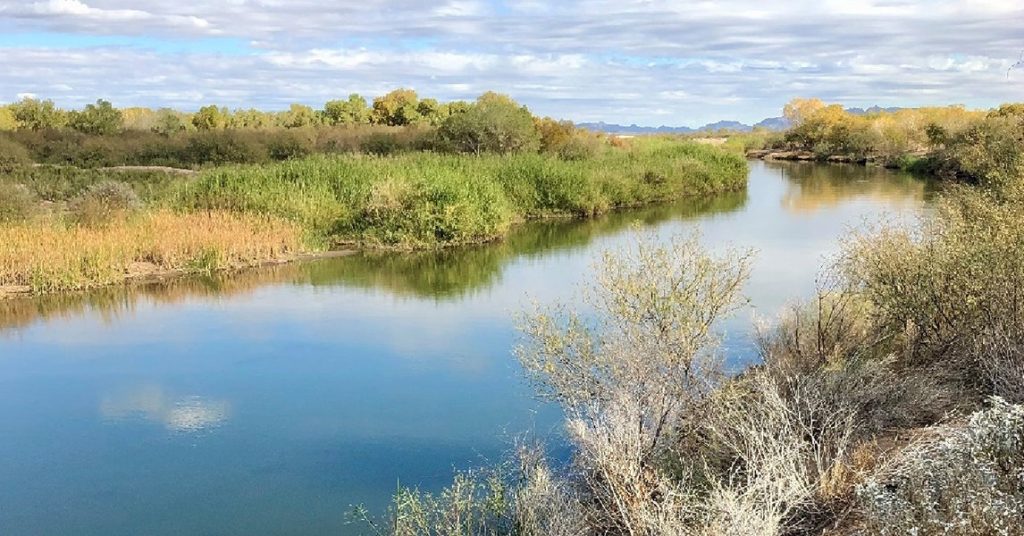The Changing Landscape of Water Rights in the American West
A Lucrative Deal in Cibola, Arizona
In the small town of Cibola, Arizona, Greenstone Resource Partners, a private company backed by global investors, recently made a groundbreaking deal. The company purchased nearly 500 acres of agricultural land and sold the associated water rights to the suburban town of Queen Creek, located over 200 miles away in the Phoenix metropolitan area. The sale, which generated a $14 million gross profit for Greenstone, involved the transfer of more than 2,000 acre-feet of water from the Colorado River, once used for irrigating farmland, to residential taps in Queen Creek.
Exploiting Colorado River Water Policies
An investigation by The Guardian revealed that Greenstone strategically acquired land and influence to facilitate this unprecedented water transfer by taking advantage of the complex water policies governing the Colorado River. As the West faces increasing water scarcity, experts anticipate that such transfers will become more common, with thirsty towns seeking to secure water resources. Rhett Larson, a water law professor at Arizona State University, noted:
“With ongoing shortages on the river, driven by climate change, Colorado River water is going to become very valuable. Anyone who understands this dynamic thinks, ‘Well, if I could buy Colorado River water rights, that’s more valuable than owning oil in this country at this stage.'”
The Complexities of Water Transfers
Selling and transferring water rights can be a bureaucratic and complicated process. Companies like Greenstone typically need to convince fellow landowners in their local irrigation district to allow the sale and secure approvals from the state department of water resources and the US Bureau of Reclamation, the federal agency responsible for managing water in the West. However, in Cibola, a select group of farmers and landowners had been working for years to facilitate such deals, unbeknownst to many residents.
Irrigation Districts and Water Possessiveness
Irrigation districts in the American West were originally formed as cooperatives in the 19th and 20th centuries, allowing farmers to pool resources for developing water infrastructure. These districts contract with the Bureau of Reclamation to deliver water from federal infrastructure to farms and ranches. Farmers are often possessive of their water, and most irrigation districts are set up to prevent the sale of water outside the district, according to Susanna Eden of the University of Arizona Water Resources Research Center.
Queen Creek’s Quest for Water Security
Queen Creek’s water manager, Paul Gardner, stated that the town had been working for years to secure water for its future. In addition to the Colorado River water deal with Greenstone, the city has sought to import groundwater from the Harquahala Valley, signing a $30 million deal with Harquahala Valley Landowners to obtain 5,000 acre-feet of groundwater annually to support its growing network of gated communities and sprawling subdivisions.
Cibola’s Vision for the Future
While Queen Creek focuses on urban development, Holly Irwin, a resident of Cibola, envisions a different future for her town. She recently oversaw the cleanup and restoration of a stretch of open space along the Colorado River, installing trash cans, picnic tables, and planning for campsites and electrical hookups for RVs. Irwin hopes to attract visitors from all over to enjoy the river and its surroundings during the summer months.
However, the shrinking Colorado River and its fading banks have raised concerns among Cibola residents. As shop owner Stewart, who moved to the area from San Diego, California, noted, “There’s been years when you could basically walk across the river. That is what has scared a lot of people. We need the water here.”

5 Comments
Quill: Making a killing on scarcity; welcome to the dry heart of capitalism!
Capitalism finds a way, even in a drought!
Solstice: Seems like they’re cashing in on tears while the earth’s well runs dry, doesn’t it?
Thirsting for profit in a drought shows how dry our moral compass has become.
So we’re just gonna ignore the ethics and chase the dollars, huh?